
The lame-duck session of the 118th Congress managed to be an active one for the higher education community, with two bipartisan education bills moving through Congress over the last four weeks. READ MORE
(By accessing, browsing or using the pages below, you agree to the Blog Conditions of Use/Disclaimer available under "Links.")

The lame-duck session of the 118th Congress managed to be an active one for the higher education community, with two bipartisan education bills moving through Congress over the last four weeks. READ MORE

Last Friday, the Ninth Circuit reversed a District Court’s decision upholding the U.S. Department of Education’s determination that Grand Canyon University did not meet nonprofit status under the Higher Education Act of 1965 (“HEA”). READ MORE

In a recent decision from the U.S. District Court for the Middle District of Florida, Judge Kathryn Kimball Mizelle declared the qui tam provision of the False Claims Act (FCA) unconstitutional, raising significant questions about the future of whistleblower litigation. READ MORE

The U.S. Department of Education continues to release significant guidance relating to its Financial Value Transparency and Gainful Employment rule, including last week’s announcement that institutions should “pause reviews of the Completers Lists and use of the FVT/GE Reports.” READ MORE

Thompson Coburn’s Higher Education Practice is pleased to announce the release of its new, four-part Title IX Training Series, designed to assist institutions of higher education to comply with the Biden administration’s 2024 Title IX rule. READ MORE

The nation has seen several iterations of student loan forgiveness plans in the past two years. Recent court action has the fate of the SAVE plan in question, and this year’s “Plan B” may yet face challenges as well. READ MORE

The U.S. Department of Education's new financial responsibility rules took effect July 1, 2024 (the “2024 Rule”). These rules are part of a sweeping set of regulations that cover financial value transparency and gainful employment, professional licensure programs, the bare minimum rule, transcript withholding, and diploma verification, among many other topics. READ MORE

The U.S. Department of Education's new financial responsibility rules take effect July 1, 2024. In this 20-minute video, Aaron Lacey discusses the new financial responsibility rules, with an emphasis on the revised and expanded financial responsibility reporting requirements. READ MORE

On April 29, 2024, the US Department of Education published its final Title IX rule in the Federal Register. READ MORE

On April 15, 2024, the U.S. Department of Education (“Department”) issued new guidance regarding the implementation of the program length restrictions for Gainful Employment (“GE”) programs. These restrictions are included in the Department’s Financial Responsibility, Administrative Capability, Certification Procedures and Ability to Benefit Final Rule (“Final Rule”) published in the Federal Register on October 31, 2023. The Final Rule takes effect on July 1, 2024. READ MORE

We interrupt your Tortured Poets Department** listening party to inform you that the Biden administration has released its long awaited Title IX rules. The new rules, published this morning in unofficial form, will be formally published in the Federal Register shortly. READ MORE

In the past three weeks, the U.S. Department of Education has released significant guidance on the implementation of its new Financial Value Transparency and Gainful Employment rule, which takes effect July 1, 2024. In this 20-minute video, Aaron Lacey breaks down key announcements and clarifications from the new guidance. He discusses the extended data reporting deadline, the latest on transitional reporting and rates, the revised implementation schedule, and new resources designed to help institutions with compliance. He also provides a brief update on the current litigation challenging the rule and reflects on other potential roadblocks to implementation. Click below to watch this update, the first in our new HigherEdReg Rundown series. READ MORE

As many REGucation readers know, Thompson Coburn has followed the U.S. Department of Education’s Borrower Defense to Repayment (BDR) rules closely over many years. This blog post will outline three recent BDR-related developments that institutions of higher education should have on their radar. READ MORE

On October 10, 2023, the U.S. Department of Education published its new Financial Value Transparency and Gainful Employment rule (the “GE Rule”). This rule represents the agency’s third effort at installing a “gainful employment” or “GE” framework in the law. Significantly, this latest version of the GE Rule has been expanded to cover all Title IV-participating programs at all Title IV-participating institutions of higher education. READ MORE

The U.S. Department of Education published an electronic announcement on November 8, 2023, offering guidance on the notification process for Borrower Defense to Repayment (“BDR") claims received by the agency between June 23, 2022, and November 15, 2022. As discussed in our September 21 webinar Responding to Student Borrower Defense to Repayment (BDR) Claims: 2023 Edition, the Sweet v. Cardona litigation requires the department to process the backlog of student BDR claims in accordance with specific timelines and standards. READ MORE

On May 19, 2023, the U.S. Department of Justice, Civil Rights Division (“DOJ”) and the U.S. Department of Education, Office of Civil Rights (“OCR”) issued a joint letter (the “Letter”) to notify colleges and universities of recent enforcement actions it has taken against postsecondary institutions in relation to online accessibility. READ MORE

On August 7, 2023, the Fifth Circuit Court of Appeals issued a nationwide injunction in Career Colleges and Schools of Texas v. Cardona, preventing the U.S. Department of Education (ED) from enforcing the latest version of its borrower defense to repayment (BDR) rule, which was published in 2022 (2022 BDR rule). READ MORE

On May 19, 2023, the U.S. Department of Education (ED) published in the Federal Register the official version of its latest notice of proposed rulemaking (NPRM). While this proposed rule covers a number of important topic areas for Title IV-participating institutions, including financial responsibility, administrative capability, and certification procedures, the most substantial element of ED’s proposal is the reintroduction of the “gainful employment” or “GE” framework. READ MORE

As proprietary institutions of higher education are acutely aware, the U.S. Department of Education’s new 90/10 regulations take effect July 1, 2023 and apply to fiscal years starting on or after January 1, 2023. The regulations, among other changes, require proprietary institutions to derive at least 10 percent of their revenue from sources other than “Federal education assistance funds.” For an explanation of additional changes to the 90/10 rule, please see our earlier blog post: Negotiated rulemaking and the new 90/10 rule. READ MORE

On April 11, 2023, the U.S. Department of Education (the “Department”) announced that it would further delay implementation of its controversial “third-party servicer” (“TPS”) guidance, which was released this February. It also provided significant policy clarifications to the regulated community concerning study abroad programs, clinical relationships, and other impacted arrangements. READ MORE

In February, the Federal Student Aid (FSA) office of the U.S. Department of Education issued Electronic Announcement General-23-09 on the updated and strengthened requirements of the Federal Trade Commission’s (FTC) Gramm-Leach-Bliley Act Safeguards Rule. READ MORE

Last week, the U.S. Department of Education made important announcements regarding oversight of “third-party servicers” and enforcement of its incentive compensation rule. In this post, we consider each of these announcements and their likely impact on the regulated community. READ MORE

On October 4, 2022, the U.S. Department of Education (the “Department”) released new guidance for students and schools on Title IX’s prohibition of discrimination based on pregnancy and pregnancy related conditions (the “Guidance”). As outlined in a memorandum from the White House’s Gender Policy Council Director, this Guidance was released in response to the Supreme Court’s recent decision in Dobbs v. Jackson Women’s Health Organization and the effect the Dobbs decision may have on students and college campuses. READ MORE

The use of transcript holds at institutions of higher education as a debt collection tool has recently become the subject of much debate and scrutiny. Because a transcript hold is one of the few levers that institutions have to address unpaid balances, institutions have long required that students be current on their financial obligations to access a transcript. Critics of the practice, however, argue that such holds may limit the ability of former students to transfer to new institutions, seek employment, or earn more advanced degrees, even for trivial or minor debts. READ MORE

On July 6, 2022, the U.S. Department of Education (the “Department”) released the unofficial version of its proposed rewrite of the borrower defense to repayment (“BDR”) rule. The BDR rule details the process by which former students can seek to have their federal loans forgiven based on misconduct by their institution. READ MORE

On June 23, 2022, the Department agreed to an extraordinary, proposed class action settlement that, if approved by the court, would go far beyond what the plaintiffs requested in the lawsuit. If finalized, the Department would automatically grant every BDR application submitted as of June 22, 2022, by approximately 200,000 former students who attended one of 153 specified schools. READ MORE

On June 23, 2022, the U.S. Department of Education (the “Department”) released its long anticipated proposed rule under Title IX of the Education Amendments of 1972, which prohibits discrimination on the basis of sex in education programs or activities receiving federal financial assistance. READ MORE

On May 5, 2022, the U.S. Government Accountability Office (GAO) released a long awaited report scrutinizing the U.S. Department of Education’s (ED) oversight of relationships between institutions of higher education and Online Program Managers (OPMs). READ MORE

A year ago, President Biden signed into law the American Rescue Plan Act of 2021, which amended the longstanding “90/10 rule” enforced by the U.S. Department of Education (the “Department”). Under the current rule, to remain eligible to participate in the federal student aid programs, a proprietary institution must “derive at least 10 percent of its revenues for each fiscal year from sources other than Title IV, HEA program funds.” READ MORE

On March 23, 2022, the U.S. Department of Education (“Department”) announced a significant new policy that, in some cases, will require owners, investors, and controlling parties of private colleges and universities to guarantee the regulatory liabilities of the school. READ MORE

While the weather is cooling down, plans for summer camps are heating up. There are a number of benefits to postsecondary institutions hosting summer camps on campus, including community outreach, revenue generation, recruitment of potential students, and positive publicity. However, such programs can also expose the institution to risk and administrative burdens. READ MORE

We're delighted to share a recent article and webinar aimed at helping institutions understand the compliance requirements found in the U.S. Department of Education’s Office of Inspector General "Guide for Compliance Attestation Engagements of Proprietary Schools Expending Higher Education Emergency Relief Act Funds." READ MORE

Here at REGucation, we have been closely monitoring the CARES Act and compliance obligations under the Higher Education Emergency Relief Fund. As we now have a clearer picture of HEERF reporting and data collection obligations, the following post may provide a timely recap and reminder of institutional obligations. READ MORE
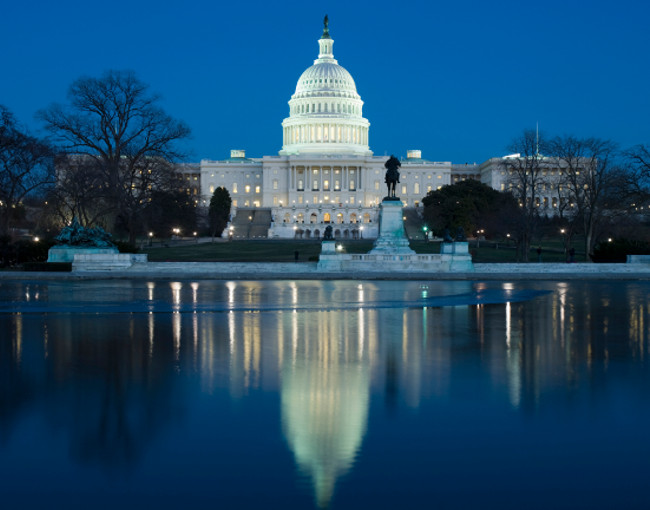
Here's an overview of the provisions of the COVID IV legislation, now pending the president's signature, that would most directly concern institutions of higher education and their borrowers. READ MORE

To assist institutions in their efforts to comply with the new Title IX requirements, Thompson Coburn’s Higher Education Practice has created a free compliance checklist, which is available for download here. This self-audit tool is designed to assist institutions as they review their policies for compliance with the new rule’s most significant requirements. READ MORE

Thompson Coburn’s Higher Education Practice has created a free, online lecture series that provides foundational training for those individuals who will be administering the new Title IX process this fall, including Title IX coordinators, investigators, advisors, hearing officers, and appeal officers. READ MORE

In an effort to respond to COVID-19, institutions of higher education are undertaking unprecedented operational changes, and doing so at lightning speed. If you have not already done so, it is important to take a moment to consider whether the changes that have occurred on your campus have given rise to new student privacy matters that need to be addressed. READ MORE

As postsecondary counsel and administrators continue to manage the many changes brought on by COVID-19, they also continue to work through a wide range of compliance issues. In this post, we include a brief note regarding compliance with notification requirements under the Clery Act, a consumer protection law that, among other things, requires postsecondary institutions to disclose information about crime and emergencies occurring on or near campus. READ MORE
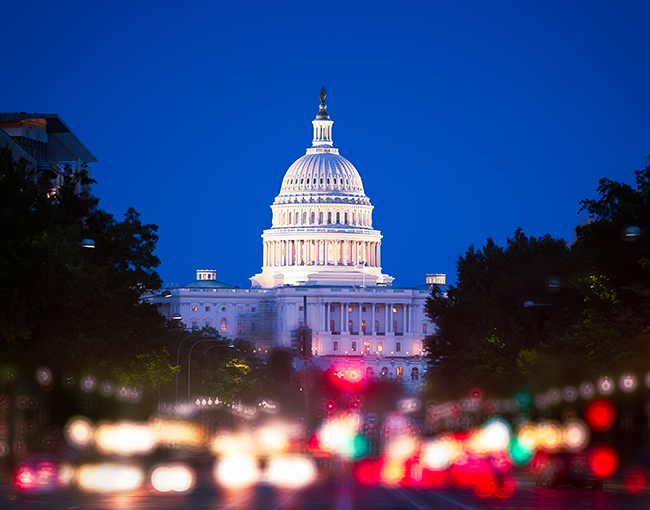
The U.S. Department of Education has issued significant new guidance to institutions of higher education regarding their receipt and use of the funds being distributed through the Higher Education Emergency Relief Fund (HEERF), a relief program created by the CARES Act. In this article, we review the important, and in some cases, surprising information that was included in the new guidance documents. READ MORE

Earlier this afternoon, the U.S. Department of Education sent a letter to institutional leaders detailing the process for securing the first round of relief funds under the Coronavirus Aid, Relief, and Economic Security (“CARES”) Act. READ MORE
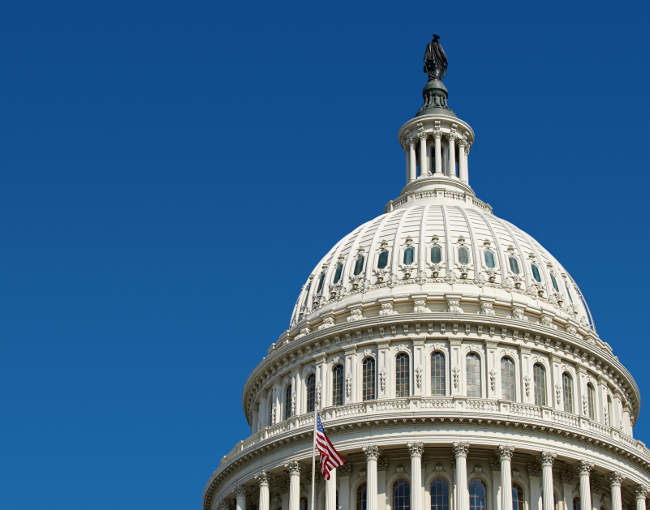
This is a brief overview of provisions of the CARES Act that, while not designed specifically for higher education, are nonetheless relevant to institutions in their roles as businesses and employers, and which may provide opportunities for economic relief. READ MORE

In this article, we provide a brief overview of the provisions of the CARES Act that most directly concern institutions of higher education and their borrowers. In some cases, the statutory language contemplates extraordinary waivers, assistance, and accommodations, with very little detail regarding when and how such relief will become available. READ MORE

The onset of COVID-19 on institutions of higher ed has come at a time when the industry is already facing significant financial distress and declining enrollment. However, for institutions who survive this hardship, there is reason to believe that the hard times that have plagued higher education in recent years might finally abate. READ MORE

In response to the Coronavirus, many colleges and universities have closed their campuses and shifted to online instruction. From F-1 students to foreign national faculty, physicians and staff, stakeholders across higher ed find themselves in the midst of a constantly evolving immigration environment, including new travel restrictions, suspension of visa services and more. READ MORE

The CCPA takes effect in less than a month. It will be the strictest privacy law in the country, and may be a model for other states as well. If they haven’t already, educational institutions—including both for-profit and non-profit schools—should take immediate steps to familiarize themselves with the statute and develop a plan to comply. READ MORE

The U.S. Department of Education released two significant announcements before the holiday. The first of the two electronic announcements is titled “Implementation of School Notice Requirements Under the 2016 Borrower Defense Regulations.” The second is titled “Liabilities Associated with Closed School Discharges.” READ MORE

For the upcoming 2019-2020 academic year, Thompson Coburn's Higher Education Practice will be offering a series of free, monthly webinars focused on legal, regulatory, and policy issues impacting institutions of higher education. READ MORE

Though simple in concept, crafting the “State Authorization Rule” has proven complex and controversial, as evidenced by a series of rulemakings, multiple lawsuits, and abundant, public criticism. The most recent interpretation of the rule has threatened to render online students in California ineligible for federal financial aid. READ MORE

On July 3, 2019, the IRS issued proposed regulations under Internal Revenue Code section 4968 regarding a 1.4% excise tax on the investment income of certain private colleges and universities. The resulting cost to institutions of higher learning could reach up to tens of millions of dollars. READ MORE

Due to the nature of their networks, colleges and universities are especially vulnerable to ransomware cyberattacks. With ransomware infections on the rise, higher education institutions should be proactive in taking appropriate protections measures. READ MORE

On July 1, 2019, the U.S. Department of Education published in the Federal Register a new Gainful Employment (GE) rule. If your institution is (1) a proprietary school, or (2) a public or private nonprofit institution that offers non-degree programs that are Title IV eligible (e.g., diploma, certificate, or graduate certificate programs), you are impacted by this new rule and have important, immediate decisions to make. READ MORE
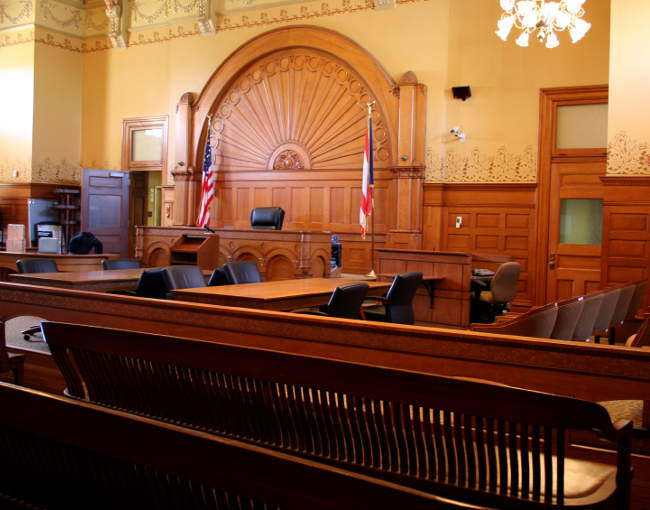
Many institutions may not fully appreciate that the deadline for one of the most onerous reporting requirements under the 2016 Borrower Defense Rule is nearly upon us. By May 15, 2019, all institutions of higher education must report all of their litigation to the Department of Education. READ MORE

In the recent UNC v. Duke basketball game, Zion Williamson’s injury set off a firestorm of discussion around a “one and done” system that put his lucrative pro career in jeopardy so he could take the court for a university that may never hand him a diploma. READ MORE

On November 29, Aaron Lacey presented a webinar examining the U.S. Department of Education’s proposed Title IX rules in significant detail. These proposed rules, if implemented, will constitute the first significant revision of the Department’s Title IX regulations in over 40 years. READ MORE

In the wake of the 2018 midterm elections, we expect considerable changes in both parties in leadership, committee assignments, and legislative priorities. As Congress embarks on the next chapter of an already divisive era in American politics, how will key issues for the higher education community come into play? READ MORE

As the Department of Education’s Borrower Defense Rule takes effect this week, it may be tempting for those in higher education to react quickly and aggressively. We suggest you be aware, be watchful, and be patient. Here are a few quick thoughts and a link to our four previous webinars on the 2016 Rule. READ MORE

In recent years, there has been a significant uptick in merger and acquisition activity involving institutions of higher education. Here we detail how and why these strategic transactions occur, explain the critical role of a letter of intent (LOI), and provide information on three key components of LOIs for higher education transactions. READ MORE

In late May, the Economic Growth, Regulatory Relief, and Consumer Protection Act (aka Bill S.2155) was signed into law. While the act primarily affects banks and financial institutions, changes to the Truth in Lending Act (TILA) and the Fair Credit Reporting Act will impact the way that schools manage institutional loans as well. READ MORE

A recent U.S. Supreme Court ruling upholding the enforcement of arbitration agreements in employment contracts likely extends the same benefit to institutions of higher education on an issue of key importance in recent years: The ability of schools to include arbitration provisions in their enrollment agreements. READ MORE

For institutions of higher education that offer private student loans, there are a multitude of federal and state laws that need to be followed. Keeping up with these laws can be a significant challenge, but failure to comply could result in severe penalties. READ MORE

The U.S. Department of Education’s new “state authorization” rule is set to become effective this coming July 1, 2018. Though there is still some possibility that the current administration will act to delay the rule, for now, institutions of higher education must prepare to comply. READ MORE

After attending the last of three discussion sessions in Washington over the Department of Education’s borrower defense rule, Aaron Lacey will host a free February 21 webinar to discuss the final session and provide insights on the entirety of the rulemaking process. READ MORE

Higher education institutions that dispute their debt-to-earnings rates as calculated by the U.S. Department of Education must submit any alternate earnings appeals no later than Thursday, February 1, 2018. READ MORE

Cybersecurity risks for institutions of higher education are even more pronounced since the Department of Education indicated it will start evaluating security controls as part of its annual student aid compliance audits of Title IV-eligible schools. READ MORE
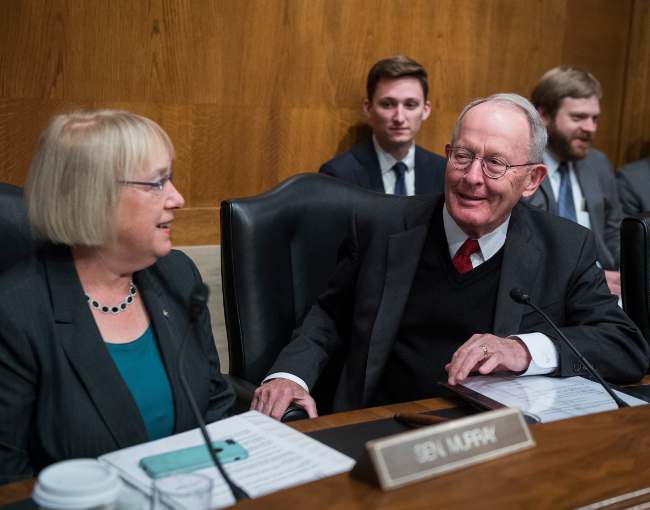
Behind the scenes in Washington, congressional staff have been hard at work on the next iteration of the Higher Education Act, which governs a huge range of federal higher education policy. So what should you expect to happen? READ MORE

Because many students at institutions of higher education are DACA beneficiaries, it is important for schools to give deliberate thought to how they will work with this group. READ MORE

On June 28, 2017, the D.C. District Court issued its opinion and order in the matter of the American Association of Cosmetology Schools v. the U.S. Department of Education. AACS challenged the Department’s Gainful Employment metrics as they specifically related to its member cosmetology schools. READ MORE

It is critical that foreign national travelers check their I-94 record diligently — every time the traveler returns to the U.S. When discrepancies are noticed, immediate actions are required: Have the I-94 corrected; make plans for subsequent travel to secure a new I-94; and/or file an extension. READ MORE

Last Friday, the Department of Education published two separate notices in the Federal Register impacting two significant and controversial rules: Gainful Employment and Borrower Defense to Repayment. Here we provide some clarifying information on these announcements in a Q&A format. READ MORE

Has higher education transformed its response to — and preparation for — campus athletic scandals? While there certainly is evidence of institutions working to improve reporting and control systems, it appears that many have yet to fully absorb and act upon the lessons of Penn State. READ MORE

Last week the Department of Education released an announcement giving higher education institutions additional time to comply with Gainful Employment (GE) Disclosure Requirements. Here we offer three thoughts on the announcement, a calendar of important dates, and an upcoming webinar on this very topic. READ MORE

The new Audit Guide dramatically increases the size and scope of testing in a student financial aid compliance audit. It is critical that post-secondary institutions subject to the Audit Guide understand the impact. READ MORE

For anyone who missed our exclusive series of webinars on the final Borrower Defense Rule, or wanted to share them with their colleagues, the recordings and PowerPoint slides are now all available (at no cost). READ MORE

To help institutions understand the final borrower defense rule and its implications, Thompson Coburn’s Higher Education Team is offering a series of four in-depth, 90-minute webinars, each focused on a different aspect of the regulatory package. READ MORE

Candidate Trump had little to say on higher education policy during the primary and general elections. What should the nation’s institutions of higher education — and the students they serve — expect during the Trump presidency? READ MORE

In a rare move, the Department of Education announced on October 12, 2016, its determination that Wesley College in Delaware had violated Title IX by failing to provide appropriate procedural protections to a student accused of sexual misconduct. READ MORE

On October 12, 2016, the U.S. Department of Education issued its long-awaited final rule regarding teacher preparation programs. After nearly five years and a fair amount of compromise, the final regulation has garnered some praise, but leaves many dissatisfied. READ MORE

Over the past two months, Thompson Coburn’s Higher Education Practice presented a four-part webinar series examining the U.S. Department of Education’s proposed borrow defense rule. If you missed a session, would like to view a session a second time, or would like to share the information with other members of your team, the recordings are now available free and on demand. READ MORE

Though this decision has most immediate and significant importance for the institutions presently accredited by ACICS, institutions throughout higher education may also be touched by this decision, should the thousands of students and employees of ACICS-accredited institutions ultimately be displaced. READ MORE

The proposed rules provide new and potentially onerous requirements for state authorization of online or distance learning programs, along with new requirements for state authorization of branch locations in foreign countries. READ MORE
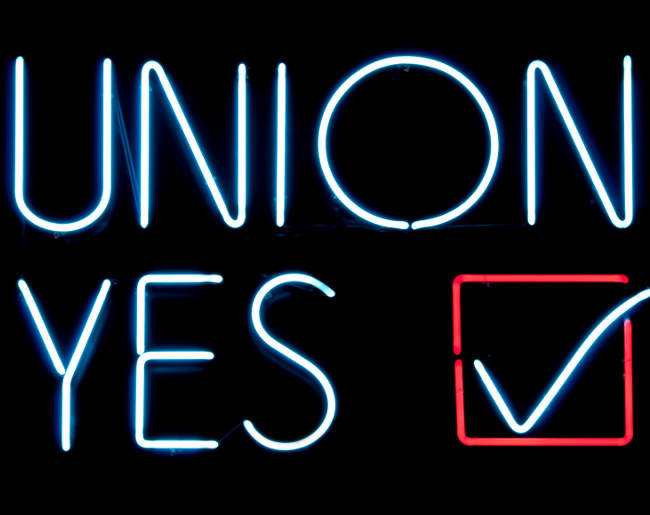
In the first decision, the NLRB held that graduate and undergraduate teaching assistants had the right to unionize. In a separate pair of decisions, the Board also held that religious studies faculty could be excluded from adjunct faculty unions. READ MORE

On June 16, 2016, the U.S. Department of Education released its proposed “borrower defense” rule, a sweeping and complex set of regulatory proposals with significance for all institutions of higher education. To help institutions understand the proposed rule and its implications, Thompson Coburn’s Higher Education Team is offering a series of in-depth webinars, each focused on a different aspect of the regulatory package. READ MORE

The same St. Louis-based law firm that filed each of the actions, Schlichter, Bogard & Denton, has previously targeted large corporations like Boeing, CIGNA, Kraft and Lockheed Martin with similar allegations, resulting in multi-million dollar settlements. Now the firm has turned its sights to private not-for-profit universities. READ MORE
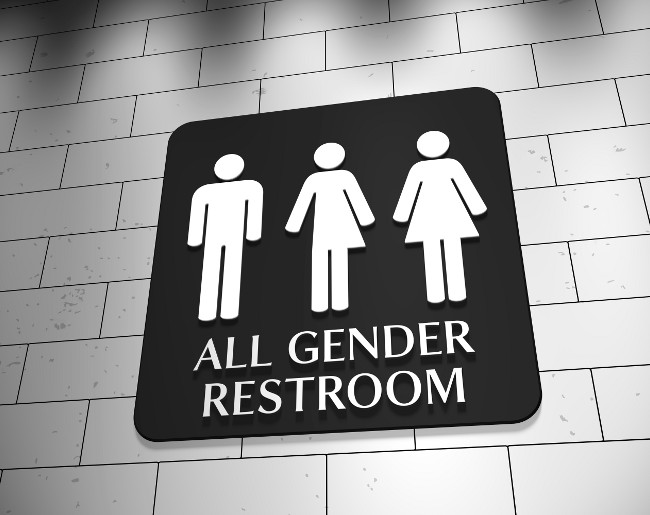
While athletics, record maintenance, field trips, and other such concerns continue to be part of the broader discussion about Title IX and transgender individuals on campus, it is undeniable that one issue has taken center stage: bathrooms. With this in mind, we offer in this post an overview of the legal issues underlying the public debate. READ MORE

One of the less-regulated industries that has lately been receiving a lot of attention is educational institutions. As technology continues to move into virtually all aspects of education, so too has the collection, use, and storage of student personally identifying information. READ MORE

Thompson Coburn higher education attorney Aaron Lacey recently wrote a step-by-step guide for Career Education Review titled, “Evaluating Your GE Completers List: A Practical Approach.” READ MORE

In a nod to increased interest in the academic use of drones, the FAA has released an interpretation on the “Educational Use of Unmanned Aircraft Systems,” which clarifies the use of UAS for hobby or recreational purposes at educational institutions and community-sponsored events. READ MORE
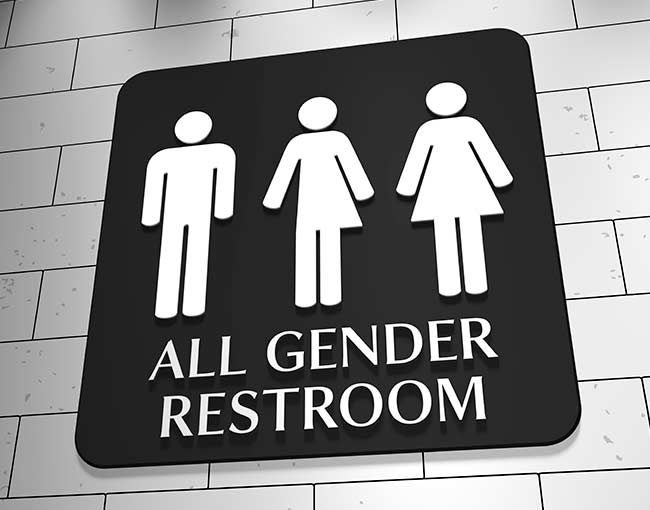
In recent months, the treatment of transgender individuals on campus has come to a head, driven in large part by the stand-off between North Carolina and the federal government over the State’s recent law banning transgender individuals from using restrooms in state facilities based on their gender identity. READ MORE
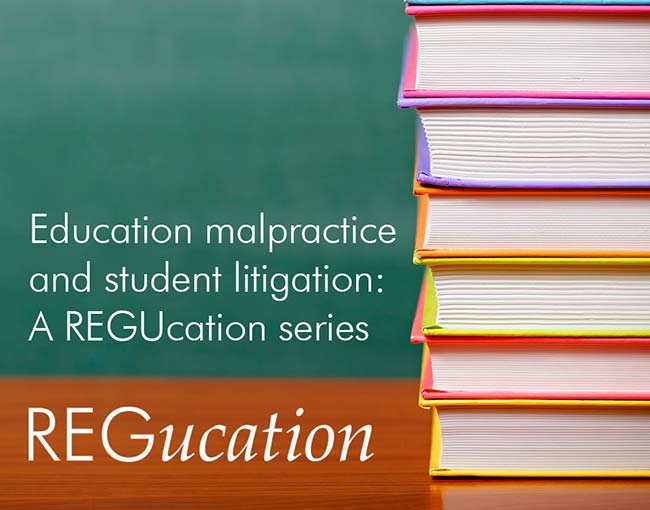
How should an institution go about exposing educational malpractice claims? The first, and simplest, option is to move to dismiss the offending claims. Because claims involving educational malpractice can often be determined from the face of the complaint, courts will find that they are barred as a matter of law. READ MORE

Claims for educational malpractice often get overlooked because they do not, on their face, clearly implicate the provision of educational services. Regardless, courts often find that claims are barred because the doctrine is broadly defined. READ MORE

We begin today a three-part series exploring recent cases that have attempted to repackage education malpractice claims into various types of breach of contract or negligence actions. READ MORE
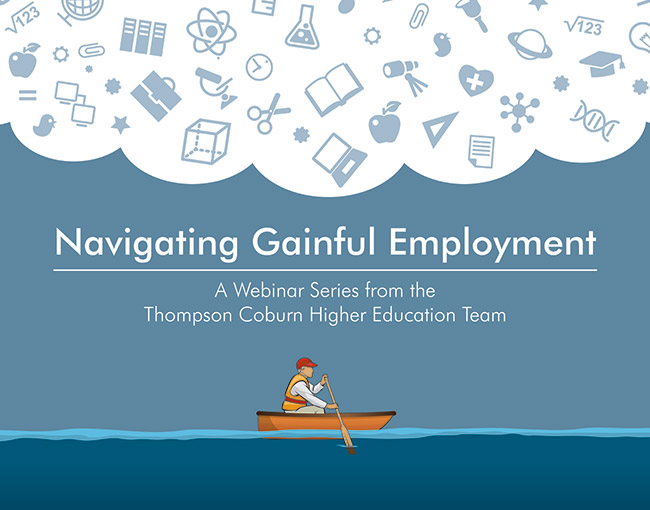
If you missed a session of our “Navigating Gainful Employment” webinar series, would like to view a session a second time, or would like to share the information with other members of your team, the recordings of all five webinars are now available free and on demand. READ MORE

As increasing attention has been paid to the representations postsecondary institutions make regarding their graduates’ employment and salary prospects, federal and state laws concerning misrepresentation have been strengthened, and specific requirements relating to employment and salary disclosures have been updated and expanded. READ MORE

Regulation of drone use is on the rise, but it is still possible for organizations to follow the registration process and successfully obtain a federal exemption to use UAS on campus for commercial purposes. READ MORE

As a general matter, the HIPAA Privacy Rule protects confidentiality of health information and imposes various restrictions on the use and disclosure of such information. However, the Office of Civil Rights, the governmental agency that enforces the HIPAA Privacy Rule, has clarified that the HIPAA Privacy Rule generally does not apply to institutions of higher education. READ MORE
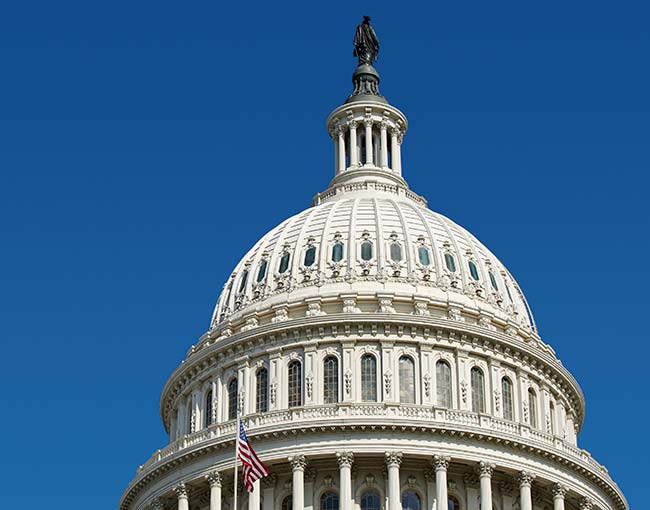
Though referring to the reauthorization of the HEA as a whole is useful shorthand for a reporter, from a regulatory standpoint, it is not accurate. There is not one single section reauthorizing the entire HEA, but instead scores of sections “reauthorizing” the government to spend funds on individual programs and initiatives. READ MORE

The Court’s reasoning strongly suggests that retention-based and placement-based compensation both ought to be permissible, given that both, like completion and graduation, are reasonably divorced from the enrollment process. READ MORE

Whether a program is covered by the gainful employment regulations turns on whether it qualifies as a Title IV eligible program by fitting into a category of “eligible program” that includes the gainful employment language. READ MORE

At the heart of the Department’s position is the principle that a postsecondary institution should, in all respects, treat a transgender student or employee consistent with his or her gender identity, as articulated by the transgender individual. READ MORE

As is always the case when developing new policies based on emerging law and guidance (a common occurrence in contemporary higher education), questions remain regarding the practical application of such guidance, and how it should be implemented when in conflict with guidance issued by other organizations. READ MORE

The new rules require institutions to report a wide range of data to the Department for each student who was enrolled in one (or more) of the institution’s GE programs during a designated period. READ MORE

Despite the considerable potential associated with these innovative offerings, competency-based education programs face “regulatory barriers that not only fail to encourage competency-based learning but in fact impede its progress.” READ MORE

The new guidance advises institutions on the independence of the Title IX coordinator position, the allocation of adequate resources and training to Title IX compliance staff, and the core functions of the coordinator role. READ MORE

Many institutions assume that if they have received a subpoena or court order, they are permitted to produce the documents in question without first obtaining authorization from the affected student (or, in the case of a minor, a parent). This assumption is not entirely correct. READ MORE

Just look at Penn State, Rutgers, or Texas Tech. An athletic program or department that operates completely independently of outside leadership or oversight can cost the school an unbelievable amount of money, as well as reputational damage that may never be restored. READ MORE

The new rules, which become effective July 1, 2015, include reporting, disclosure, and certification requirements, as well as new debt-to-earnings metrics designed to assess whether a program offers a reasonable return on investment. READ MORE
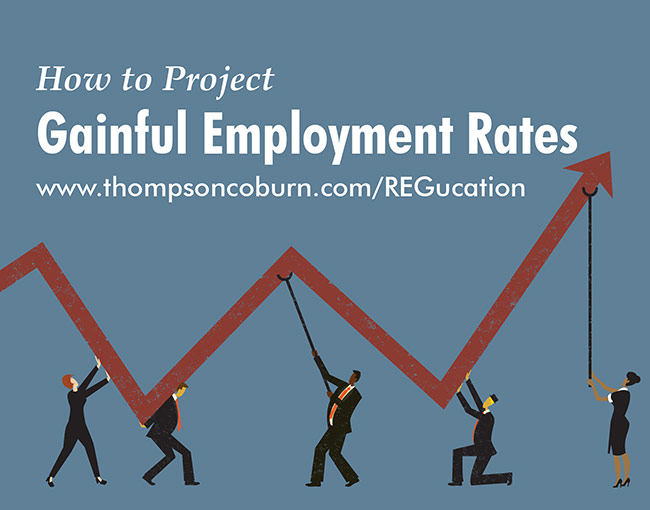
The desk guide comes on the heels of the introduction of our webinar series on gainful employment rules. READ MORE
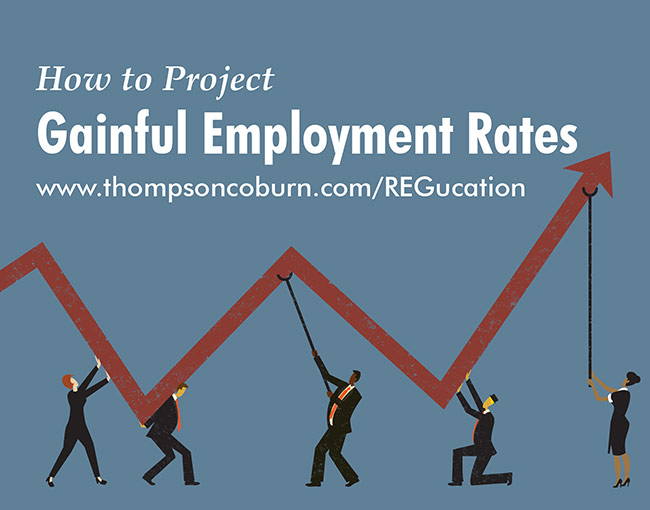
Because this SSA data is not (and presumably will not be) made available to the public, for each GE Program, you will have to develop a proxy for the SSA earnings information. READ MORE

The final step in determining the numerator for your D/E rates is to amortize the median loan debt for each GE Program over a 10-, 15-, or 20-year repayment period. READ MORE

The new regulations prominently feature two metrics intended to assess whether a program offers graduates a reasonable return on investment: (1) the Annual Earnings Rate, and (2) the Discretionary Income Rate. READ MORE

It’s not possible to project with absolute certainty whether a GE program will produce satisfactory rates. With a few educated assumptions, however, institutions should be able to project which programs will pass easily, which will be close, and which will likely fail. READ MORE

For institutions of higher education that sponsor foreign national faculty, researchers and staff and those institutions with international student bodies, the anticipated changes could have significant impact on employees, students, and their families. READ MORE

While the GE regulatory framework includes reporting, disclosure, and certification requirements, it most prominently features two metrics, each ultimately intended to assess whether a program offers a reasonable return on investment: (1) the Annual Earnings Rate, and (2) the Discretionary Income Rate. READ MORE

In the days leading up to a national election, it can be challenging to navigate the waves of analysis and prognostication that flow forth from inside the Beltway, even when your interests are narrowly focused on a specific issue or industry. With this in mind, we’ve pulled from the midterm morass the following key points for the higher education community. READ MORE

If the initial call with the Department goes as it should, following the call, your institution will have a good sense regarding the nature of the review, the locations included, the review period, and the dates for the onsite visit. READ MORE

The proposed rules would expand student disclosure requirements significantly, by some measures tripling the information that must be reported to the Department for each GE program and disclosed on the school’s website, in pre-enrollment disclosures, and in related marketing materials. READ MORE

Congress enacted a package of integrity provisions designed to eliminate fly-by-night institutions from the programs, lower loan default rates, and address certain other areas of abuse. READ MORE

We thought we would take a moment to discuss the notice and distribution requirements relating to the Annual Security Report (ASR) and Annual Fire Safety Report (AFSR), and to suggest some best practices for ensuring that these requirements are satisfied year-over-year, as efficiently as possible. READ MORE

Of the three new crimes introduced by Violence Against Women Reauthorization Act, stalking is unique in that it involves a pattern of conduct that occurs over a period of time and, potentially, in various locations. As a consequence, identifying, recording, and reporting incidents of stalking present particular challenges. READ MORE

The U.S. Department of Education has directed institutions to make a good-faith effort to gather and publish the new crime statistics in this year’s Annual Security Report, with the understanding that schools will be required to report the new statistics to the Department in 2015. With this directive in mind, we’ve set out below five important points to keep in mind when crunching the numbers this fall. READ MORE

Postsecondary institutions face very real challenges on a daily basis, and have little free time to spend contemplating hypothetical audits. Unfortunately, as a result, most administrators are ill-prepared to receive “the call” when it does occur. READ MORE

Managing compliance with Title IX and the Jean Clery Act has been on many an administrator’s mind of late. The U.S. Department of Education’s Office of Civil Rights (OCR) has, through administrative action and announcement, issued volumes of new guidance that to many in the regulated community appear to incorporate extensive new requirements. READ MORE

One of the more common questions we receive in our higher education practice concerns whether an institution may offer a student or alumni referral program without running afoul of federal law. Or, more specifically, whether such a program violates the incentive compensation regulations enforced by the U.S. Department of Education. READ MORE

Welcome to REGucation, the higher education blog that strives, through practical advice and insight, to help the higher education community manage a fast-changing and increasingly complex regulatory environment. READ MORE
NOTICE.
Although we would like to hear from you, we cannot represent you until we know that
doing so will not create a conflict of interest. Also, we cannot treat unsolicited
information as confidential. Accordingly, please do not send us any information
about any matter that may involve you until you receive a written statement from
us that we represent you (an ‘engagement letter’).
By clicking the ‘ACCEPT’ button, you agree that we may review any information you transmit to us. You recognize that our review of your information, even if you submitted it in a good faith effort to retain us, and, further, even if you consider it confidential, does not preclude us from representing another client directly adverse to you, even in a matter where that information could and will be used against you. Please click the ‘ACCEPT’ button if you understand and accept the foregoing statement and wish to proceed.